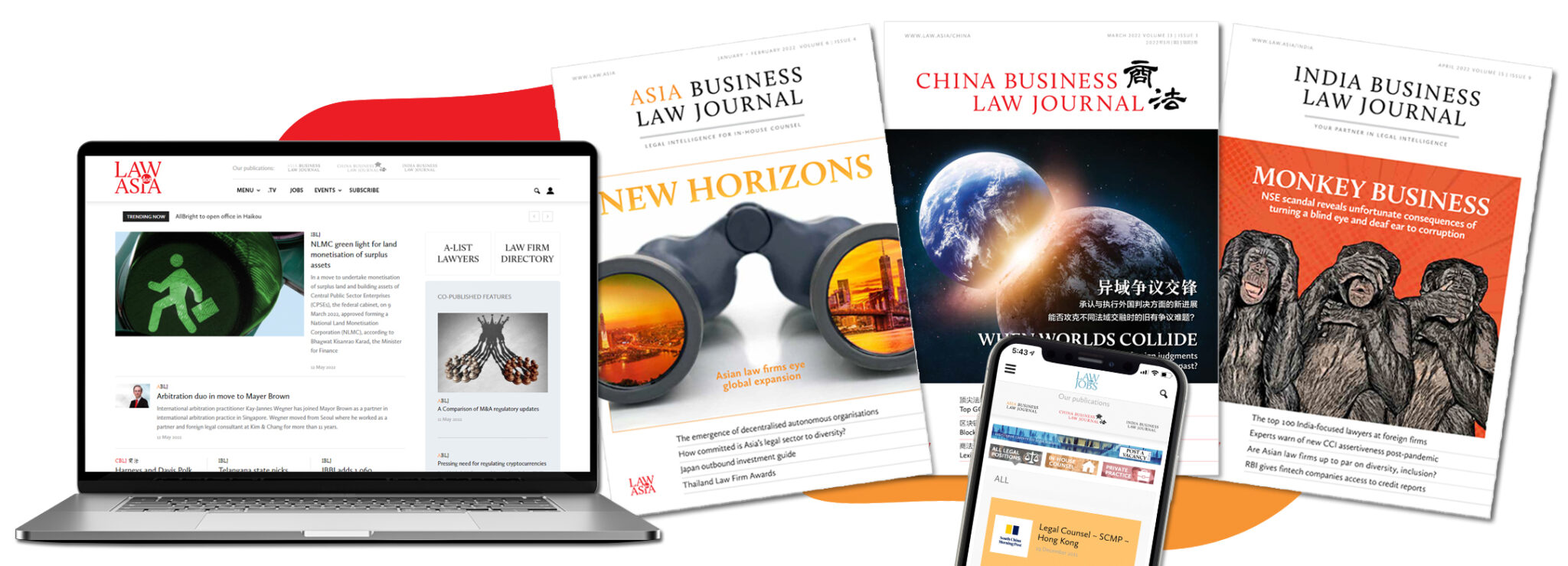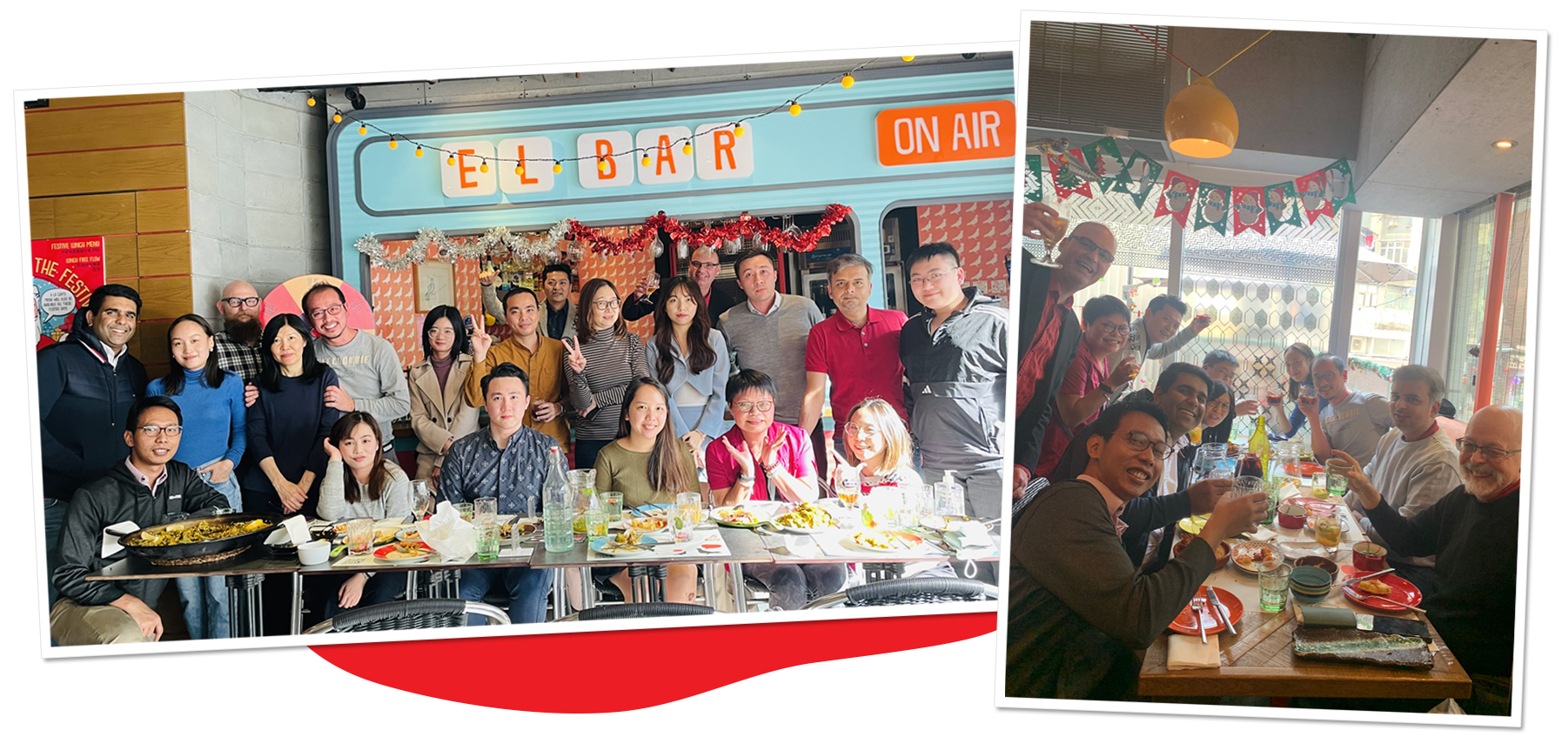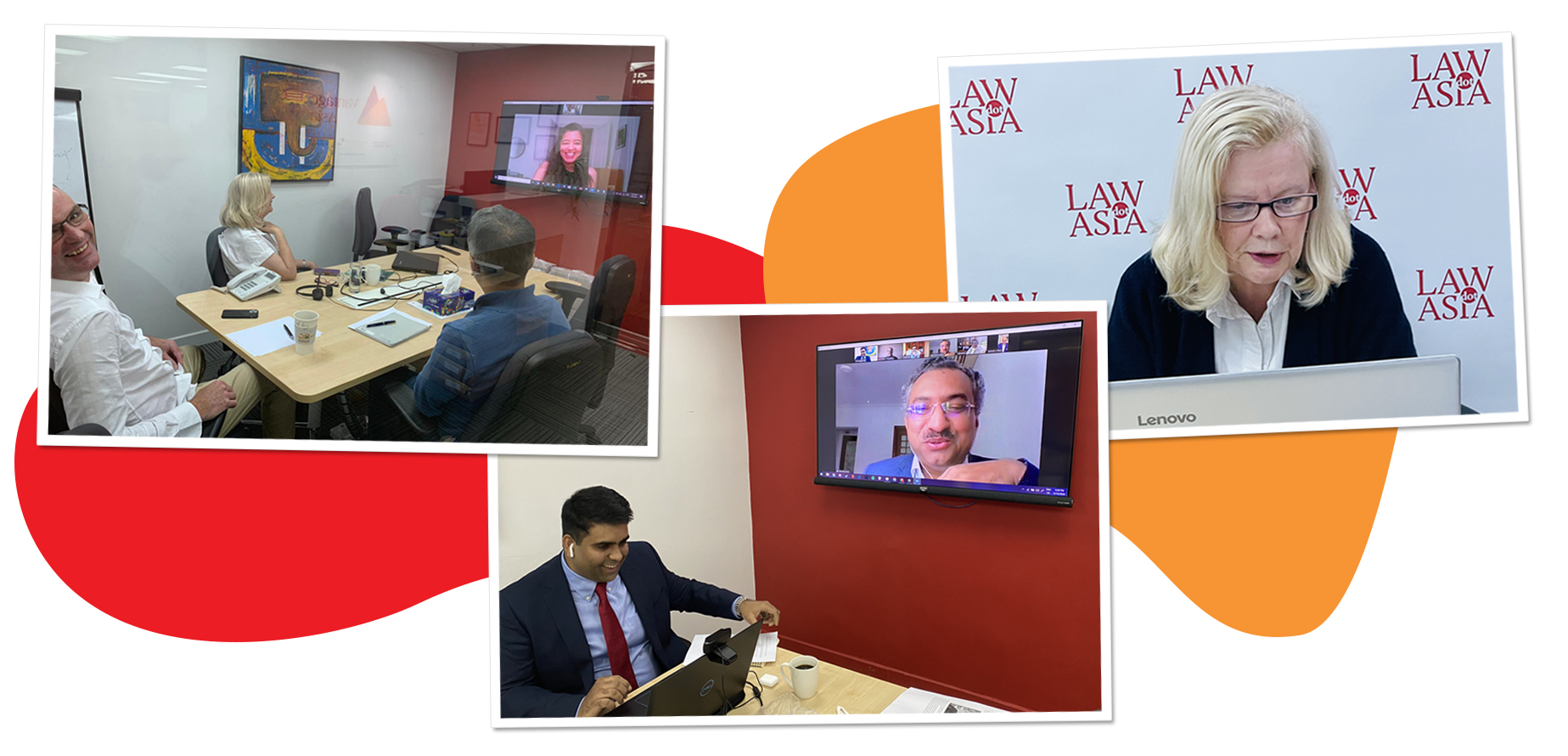1. How was Vantage Asia established, what was the intention at the time?
Vantage Asia was established in 2006 in response to a gap in the market for a high-quality magazine covering business law developments in India. India Business Law Journal was subsequently launched in June 2007, providing a monthly source of news and expert analysis on legal developments to a global audience of India-focused in-house counsel and partners at Indian and international law firms.
2. When did Vantage Asia foray into newer jurisdictions and geographies and gain popularity there?
Following our success with India Business Law Journal, we launched China Business Law Journal, the first and only fully bilingual legal magazine for the PRC, in 2010. Asia Business Law Journal followed in 2016. All three magazines are published in print and online at Law.asia. Our popularity has grown rapidly over the years. Law.asia routinely attracts 200,000+ readers per month and is ranked by independent internet analytics companies as one of the most-visited Asia-focused websites for business law information.
3. How many journals and microsites are housed under the Vantage Asia umbrella at the moment? Why did you feel the need to bifurcate as per country?
In addition to our three magazines, we publish Asia’s leading directory of law firms – Asia Business Law Directory (Law.asia/directory) – which contains profiles of 300+ Asian law firms, including more than 100 in India and 80 in China, and A-Lists that identify the top lawyers in key jurisdictions based on nominations from in-house counsel. Meanwhile, our recruitment service, Law.jobs, showcases many of the most sought-after legal vacancies in Asia.
We chose to establish different magazines for different markets because while some of our readers have regional responsibilities, others are focused on a single jurisdiction, particularly India or China. Moreover, our readers in different parts of the region have different language requirements. For this reason, China Business Law Journal is fully bilingual in English and Chinese, while Asia Business Law Journal has Japanese and Korean-language editions.

4. What makes Vantage Asia so reliable? What sets you apart?
Our reliability comes from the rich experience and local Asian knowledge of our talented team. We are Asia-based and Asia-focused. Our team members have close to 100 years’ combined experience of legal publishing in Asia. Lots of them have been with us for many years and are familiar faces to lawyers and in-house counsel around the region.
Other factors that make us unique include our multilingual content (we publish in English, Chinese, Japanese and Korean) and our focus on serving in-house counsel rather than only lawyers at law firms.
Editorially, our coverage goes far beyond legal news. Our features provide in-depth analysis and practical insights into complex legal issues, giving our corporate readers the tools to seize opportunities and optimise business decision making and risk management. Much of the intelligence we provide is not available from any other source. For example, our annual surveys of law firm billing rates in India and China are totally unique.
5. Having interacted with lawyers across the APAC region, what according to you, do lawyers in APAC do better than their western counterparts?
Western law firms cannot match their Asian peers when it comes to local intelligence, contacts and cultural familiarity in different parts of Asia.
6. Having interacted with lawyers across the APAC region, what according to you, do lawyers in APAC need to learn to do from their western counterparts?
Western law firms tend to be more advanced in the adoption of law firm management systems, knowledge management tools and legal tech. These systems are important for the retention of talent and knowledge within firms. Asian law firms could also learn important lessons from their Western counterparts in fostering greater diversity and promoting a better work-life balance for their staff.
7. Can you share some (maybe 3) fun facts about Vantage Asia. (about your people, offices, just about anything to give the audience a sense of your culture)
- Our multicultural team has a gender ratio of around 50:50 and hails from a diverse range of countries and jurisdictions, including Australia, mainland China, Hong Kong, India, Indonesia, Japan, Korea, the Philippines and the UK.
- While the pandemic has temporarily stopped us from making our regular visits to law firms and in-house legal teams around the region, we have been anything but idle. In the last two years we have launched a new online brand and legal portal – Law.asia. Our website traffic has increased by more than 150%. We have also expanded the size of our team by almost 50%, and doubled our office space in Hong Kong.
- In 2011, India Business Law Journal’s publisher, James Burden, along with two friends, drove an autorickshaw 3,000 km across India to raise money for charity. The route took them from Shillong in Meghalaya to Jaisalmer in Rajasthan and they raised a total of GBP7,328 (USD11,500) for Frank Water, which provides safe water and sanitation facilities to rural Indian communities. They covered the full distance in nine days with only one crash.
- This is not a “fun fact”, but it’s worth mentioning. Shocked by the terrible suffering we witnessed in India during the Delta wave of the pandemic in the spring of 2021, our company donated HKD100,000 (USD12,900) to crowdfunding initiatives to purchase oxygen and food for covid patients in India and their families. Many of our team members also made personal donations.

Top: General counsel forum in Shanghai, hosted by Vantage Asia in 2019. Middle: Asia Business Law Journal’s publisher, Thom Andrews, James Burden, and senior associate editor, Putro Harnowo, take a day out to cycle across Hong Kong’s New Territories. Bottom: James Burden, nearing the end of a 3,000 km autorickshaw drive across India.
8. With covid-19 changing the face of business, what changes does Vantage Asia see in the way lawyers in the APAC region, conduct their practice?
The greatest impact of the pandemic on the practice of law is the extent to which lawyers have been willing (or forced) to embrace new technology. The practice of law is a people business that relies on personal relationships and face-to-face interaction. With these channels of communication shut down, lawyers – who are not generally known for being early adopters of new technology – had little choice other than to seek alternative methods of client engagement. The speed at which they embraced video meetings, webinars and even virtual courts was nothing short of astounding, and many law firms also acquired expertise in engaging with clients through websites, social media and other technologies. The pandemic has vaulted the legal profession into the digital age and the legacy of this will long outlast the virus.
9. What business expansion plans does the publishing house have for itself in the coming times, with digitization rapidly gaining popularity among lawyers? (we see the TV tab on the website where you host video content + a bunch of events under the events tab – feel free to elaborate here)
Our online editions have grown hugely in popularity in recent years, and we see this trend continuing. In 2020 we introduced the domain “Law.asia” as our portal hosting the digital editions of our three journals, along with many additional resources for Asia focused in-house counsel and lawyers in private practice. Last month we unveiled a new frontpage for Law.asia, featuring a fresh new look, rolling content from all three journals, and direct links to our A-Lists and law firm directory. Moving forward, we see increasing demand for video content, and we recently made some important hires to boost our capacity in this area. We also look forward to resuming our events business once the pandemic permits. In 2019, we held two large general counsel forums in China, each attracting more than 400 senior-level delegates. We look forward to bringing similar events to India and other jurisdictions in the near future.

10. How can one write for a feature for the magazine(s) or get quoted in a piece that your editorial works on?
Our independent editorial coverage is written by our in-house journalists, or commissioned to external authors at the discretion of our editors. We do not accept unsolicited editorial submissions. Similarly, decisions on who is quoted in our independent editorial coverage are taken by our journalists based on editorial merit. As such, the best way for legal professionals to increase their chances of being quoted is to make themselves easily accessible to our journalists (rather than hiding behind gatekeepers), and to be prepared to go on record with comments that are honest, interesting and, if necessary, controversial. Comments that amount to little more than corporate PR are unlikely to make it into our coverage.
In addition to our independent editorial coverage, some sections of our journals are co-published with law firms or other knowledge partners. These sections are sponsored and written by our knowledge partners, which are typically experts in particular areas of law. The content of such articles is always appraised and edited by Vantage Asia’s editors.
11. What do you think the next 5 years will look like for the legal industry, for the APAC region?
We see huge potential for the development of Asia’s legal profession. The region has become a powerhouse of the global economy and we expect it also to emerge as a powerhouse of legal services. In recent years, we have witnessed an increasing number of Asia-headquartered law firms establishing international – sometimes global – footprints. We expect this trend to continue and accelerate, and we look forward to seeing leading Asian law firms joining the ranks of the world’s top international law firms.
